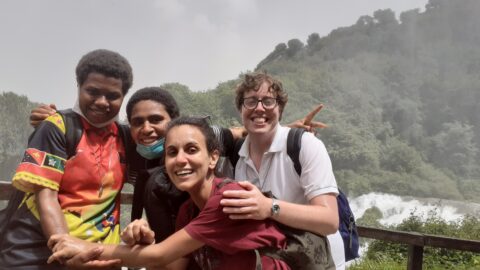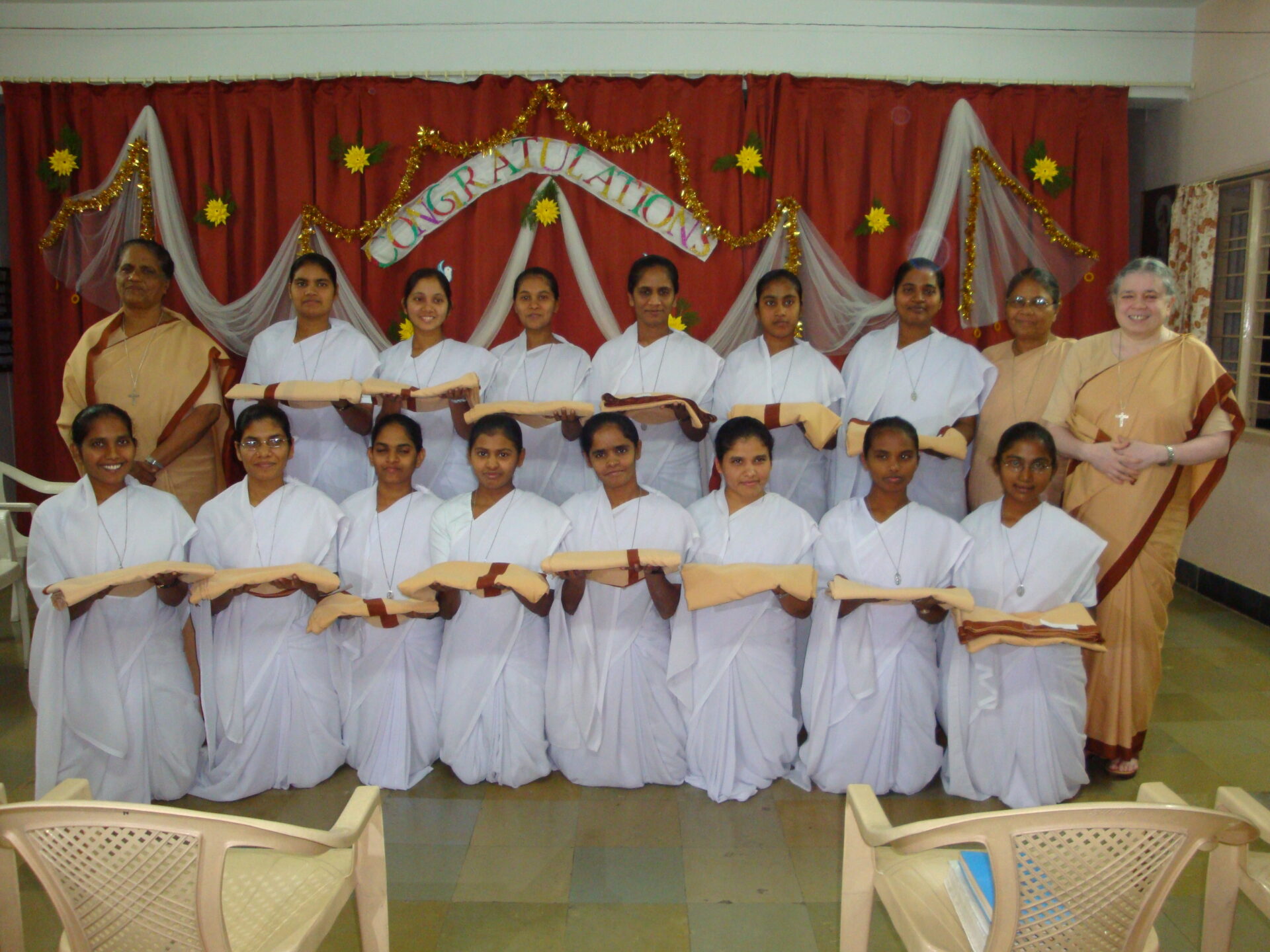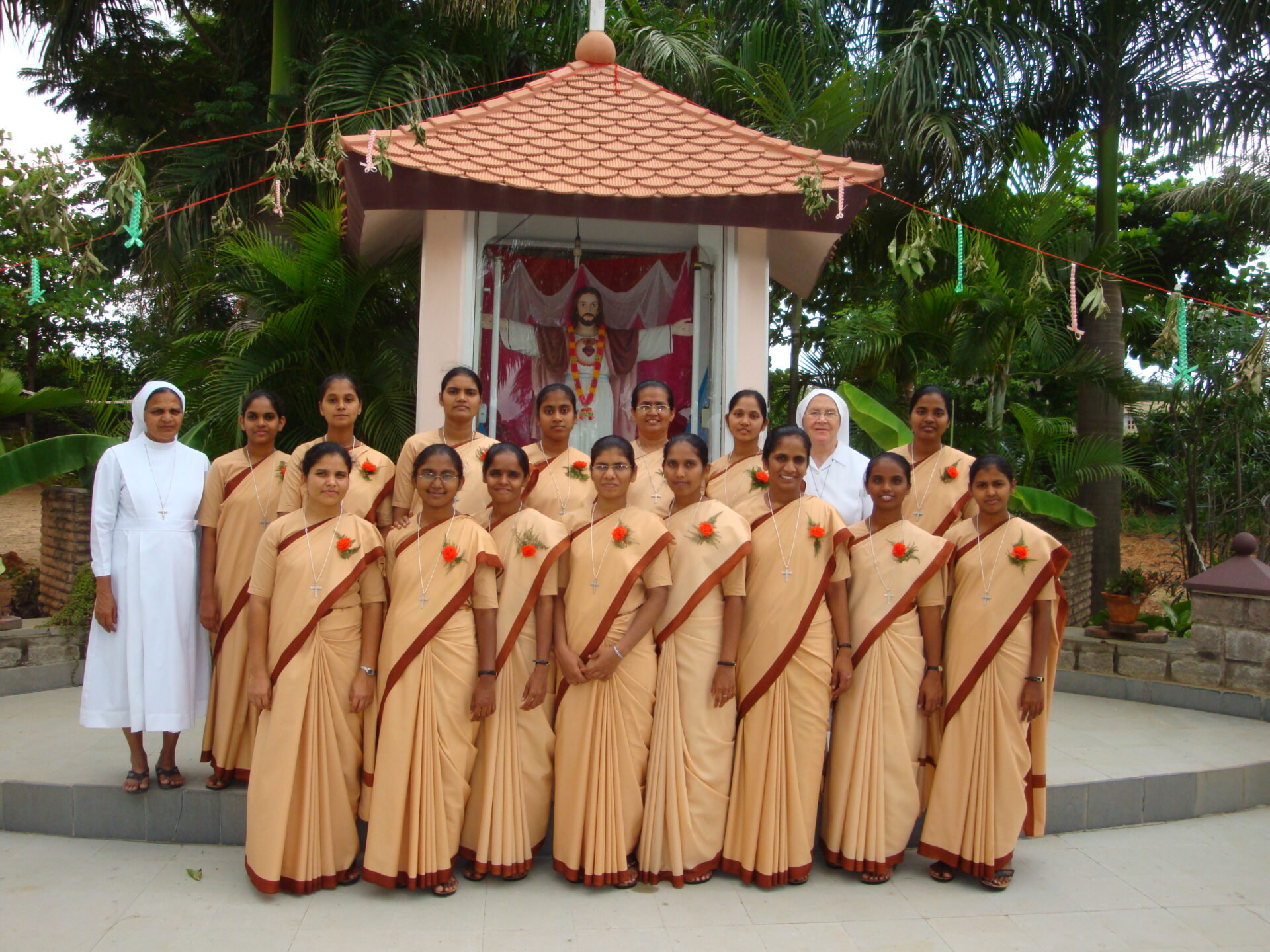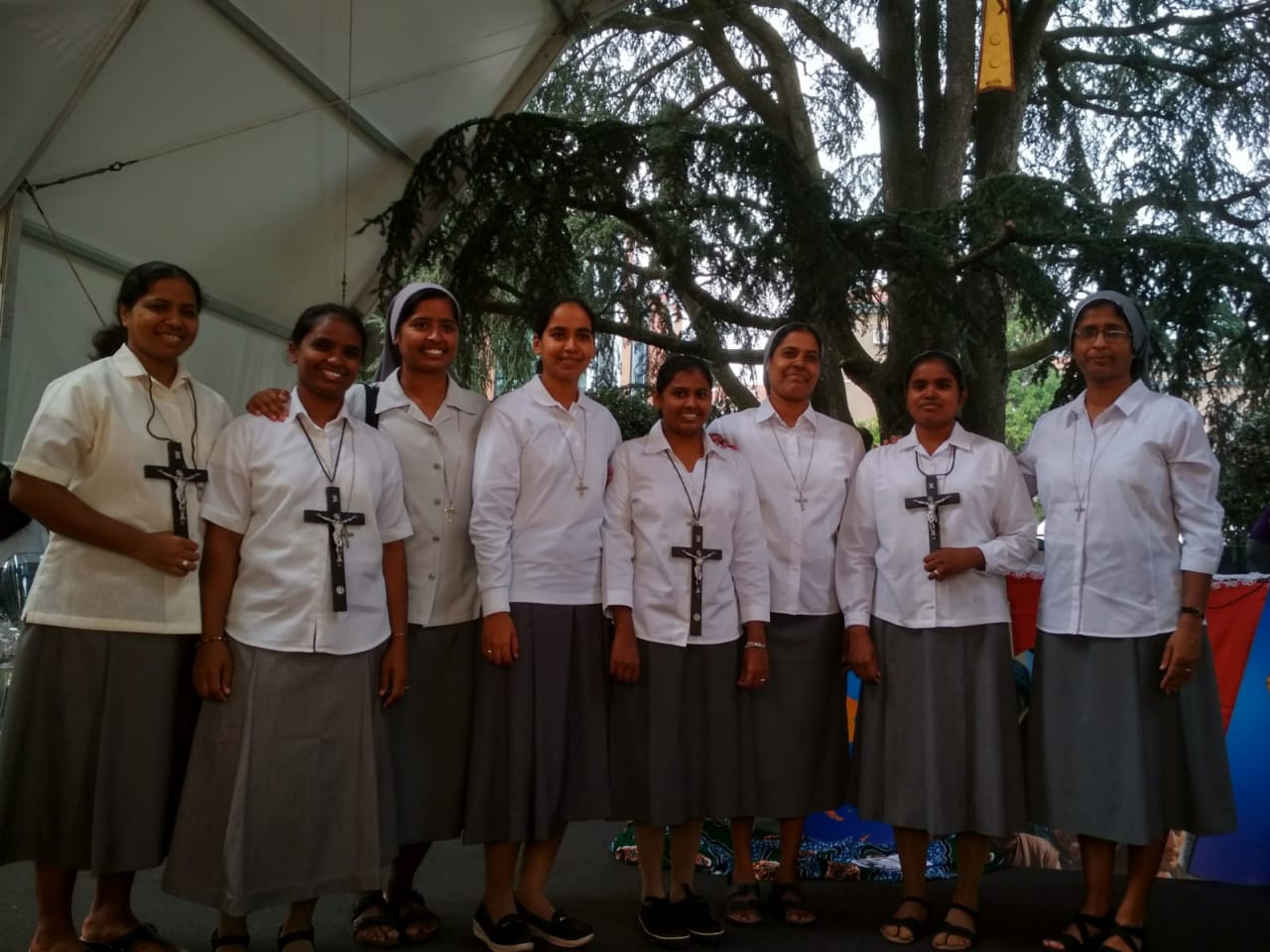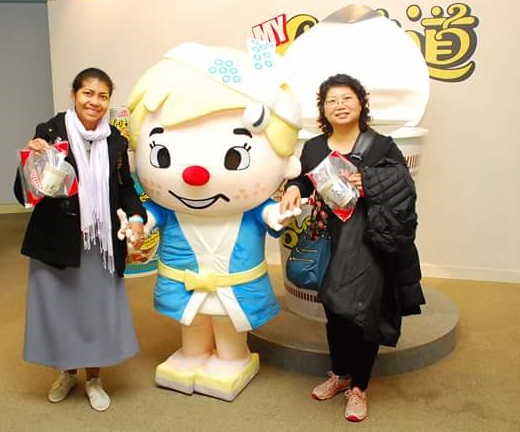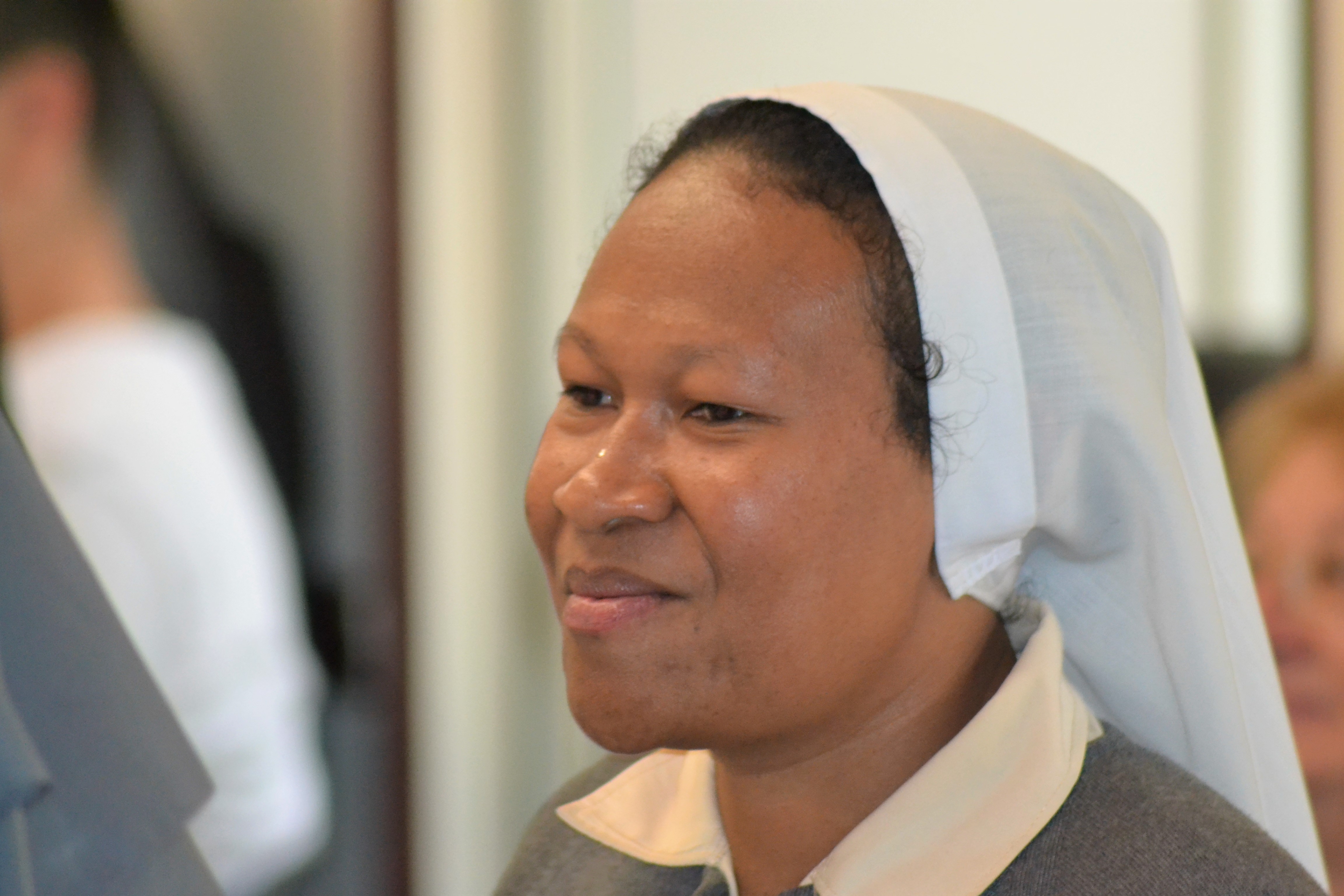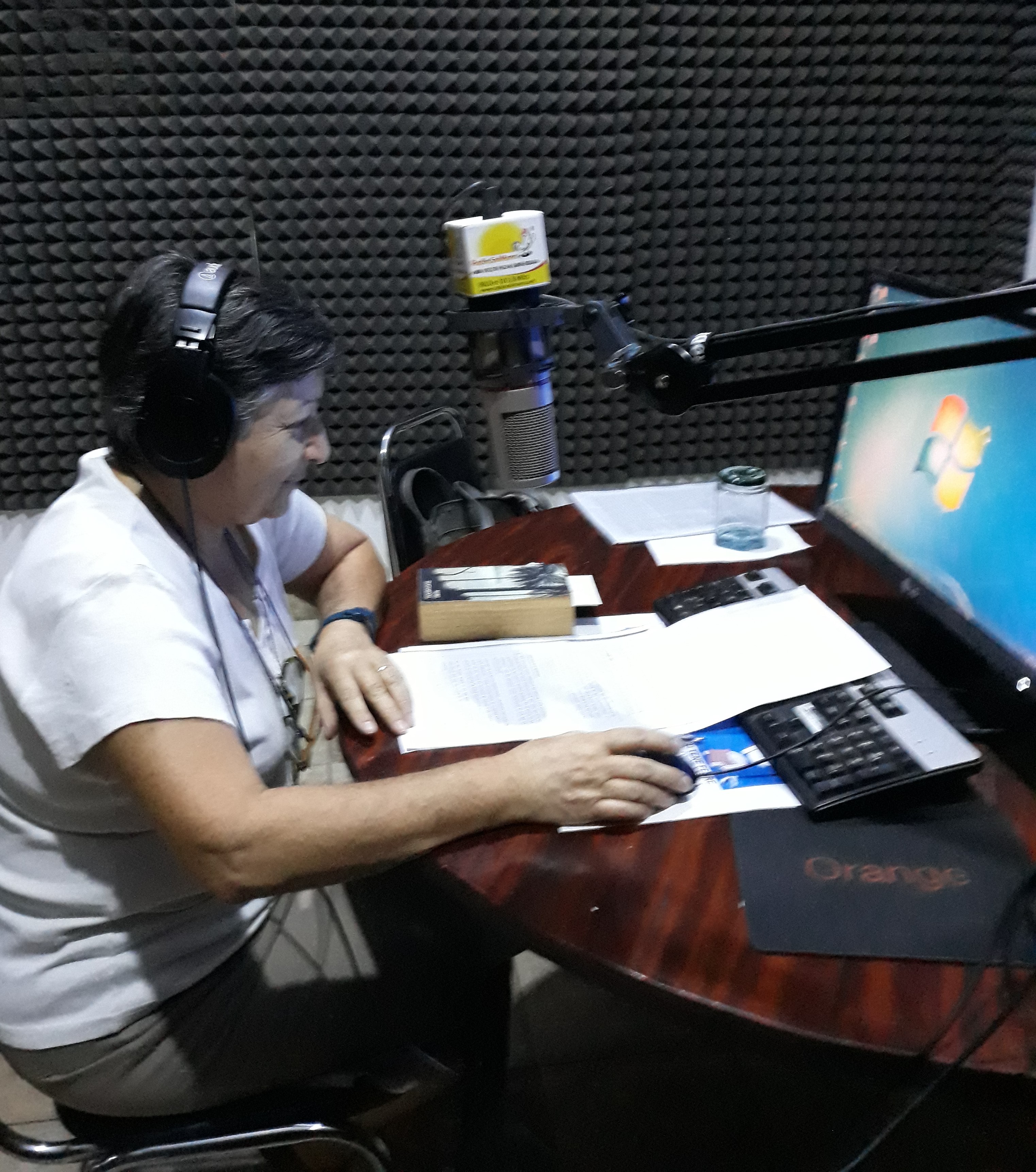I’m Sr. Minoti Baskey, from Bangladesh. I was born in a catholic family, my father and my grandfather were catechists and teachers. I grew up in Pathorgata parish (Dinajpur diocese), at that time entrusted to PIME Fathers. I’m used to live in a big family, I have four brothers. I’m the first born of my parents and the only girl.
A catholic and missionary context
One of the graces that I can recognize in my life is the possibility to grow up in a missionary context, thanks to the closeness to PIME Fathers. Till class V,  I grew up in the mission hostel entrusted to a local congregation ‘Shanti Rani sisters’ (Suore di Maria Regina della Pace). I moved then to another parish, always staying in a hostel run by Shanti Rani Sisters, to complete High School. After the diploma the sisters suggested me to remain with them and join their congregation. Though, I was very young and – at that time – not so determined to make that choice. My parents, especially my father, preferred me to continue studying.
I grew up in the mission hostel entrusted to a local congregation ‘Shanti Rani sisters’ (Suore di Maria Regina della Pace). I moved then to another parish, always staying in a hostel run by Shanti Rani Sisters, to complete High School. After the diploma the sisters suggested me to remain with them and join their congregation. Though, I was very young and – at that time – not so determined to make that choice. My parents, especially my father, preferred me to continue studying.
I met the Missionary Sisters of the Immaculate for the first time in Boldipukur, where I went to join a biblical course. At that time it was easy to hear somebody asking me about my plans for the future…I always answered ‘I’m surely not interested in religious life, I’m here only to study!’. But, actually, seeing how our sisters lived in their ordinary life, moved something within me. Many questions and curiosities came up in my mind: ‘how do Pime Sisters live? What time do they pray? How often? In which language?’. My relationship with them was very friendly, one of them also taught me how to drive a bicycle!
My first working experiences
I continued my studies and enrolled for BA. My relation with the sister was very close, I was used to attend classes with the girls and aspirants, but I was not actually thinking of joining any congregation, I was focused on my study. Having completed the BA, I was determined to start to work, and I insisted with my father, because he didn’t agree. I applied for two jobs and I passed the entry-test for both of them. I chose one job position in human development field. After only one week, one of my relatives who was working there told me: ‘I see that here you are working very well, but I think that in religious life you will work better, spending your talents for everybody, not just for someone and for profit. Don’t you think you have vocation for religious life?’. I answered him that my parents loved me too much to let me leave, that I was the only daughter and the eldest one’ that I had to help them in their responsibility for the family. He answered ‘You have to free your vocation, you have to discern about your vocation with the sisters and then decide’.
These words, this unexpected conversation made me start thinking seriously about my future life choice. That was the moment in which I decided to verify definitively my vocation.
Come and see?
I went to Dhanjuri to talk to Sr Clara whom I met at the biblical course. When she heard my intention to join she gave me the address of sr Giuliana who was in charge of the formation and I wrote a letter to her. She answered me very quickly: ‘Come whenever you want to Dhaka – Monipuripara and bring with you a letter from your parish priest’. This simple request was very difficult for me to fulfil. In fact, I went to my parish priest Fr. Berutti, PIME to ask for a recommendation letter, but he answered that he actually knew very well all the members of my family but me, thus he wanted to take time to better know each other.
Although his answer was a refusal and an obstacle for me, I didn’t lose any hope and I tried to understand the way to answer to the Father’s request. I started to work as a teacher in the school of the parish. In the following few months, I didn’t mention my vocation either my desires for the future. One day, Fr. Berutti called me and he told me that I was working very well in school. So, I took courage and I asked him again a presentation letter for the sisters. He agreed and he was very happy about my decision. From that day on, he accompanied me step by step till the day of my joining. This choice hasn’t been so easy for my parents to accept, because I was leaving them. After my period of formation I made my first profession in Dhaka. I spent a few years in different communities in Bangladesh Province: Mirpur, Kewachala, Bonpara; I also went to Italy for one year for an International Course.
I had the desire to go to the mission, but I’ve never thought it as possible. I kept in my heart this desire. Probably guessing what it was already in my heart, one day Sr. Golapi (the first Bangladeshi sister to join our Congregation) told me:
‘we are missionaries, do you want to go to the mission or not? We don’t know if it is going to happen or not, but we have to think about it, to desire it with all our heart’.
Mission in North Brazil
 At the end of the International course held in Italy, the superior told us to get prepared to go to the mission … and actually some days afterwards our Superior General called me: “what do you think about going to the mission?”. That was another unexpected moment, another moment of grace in the life of a missionary…I have been designated to North Brasil.
At the end of the International course held in Italy, the superior told us to get prepared to go to the mission … and actually some days afterwards our Superior General called me: “what do you think about going to the mission?”. That was another unexpected moment, another moment of grace in the life of a missionary…I have been designated to North Brasil.
If I try to think of how the mission has changed me in these six years, the first thing I have to say is that this experience gave me the opportunity to welcome a new richness. The mission is richness, especially in knowing new cultures. Many good aspects and traditions are there in the new culture. The mission helps you to be open to accept others, and this also has been for me a richness, I can say that it really helped me to grow form a human and spiritual point of view. I’ve learnt many things from my mission in North Brazil, especially about the way of being Church and the role of lay people. Every day I can live and work in a Church that is diversified, in which various and well-prepared kinds of people (priests, consecrated men and women, lay people, youth, …) can participate with their own charism.
According to me, mission can also mean cultural shock and cross, as for me in the effort of knowing a new language, Portuguese, but also in discovering new social tendencies and problems I wasn’t familiar with, like drug addiction, broken families, youth fragility, suicide, that unfortunately are common in North Brazil… Despite all of that the key word of my experience is happiness: happiness of remaining with the people, happiness of having the opportunity to announce and share the Word of God. Happiness is for me going every day where help, assistance, support are needed and where is to share and preach the Word of God. My desire above all is to help the people to deepen their relation with Christ.


